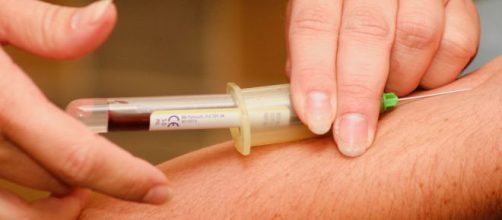According to figures from the Royal College of GPs, last year alone in the UK there were 155 deaths from flu, and flu admissions across the UK were up 150 per cent. For vulnerable people who suffer from an increased risk of the infection, their lives can be saved simply by having a flu jab.
Overcoming Trypanophobia
However, according to Harley Street hypnotherapist Karl Rollison, a small but significant number of the population suffer from a condition called Trypanophobia, which is a fear of medical needles and syringes. It’s a fear that many people are prepared to risk their life for, by avoiding life-saving injections.
That is why this winter, Karl is opening the doors to his Harley Street clinic to give FREE treatment to anyone who is suffering from the phobia.
Here Karl chats to us about the importance of facing our fears.
How did you become a hypnotist and a therapist?
Karl Rollison : "I’ve been helping people all my life, even when I was a kid I was an agony uncle. Over the years boat-loads of people have told me I should be counsellor or therapist. One day my best mate Sean turned up and told me that he was so sure that I should help people for a living that he’d done a load of research and paid for me to go on a week-long life coaching course. I went on it (it was the first of many courses) and the rest, as they say, is history."
What is the best piece of advice you can give to overcome a phobia?
"Think about how restrictive a phobia is. If you really want to get rid of it you need to face up to it and take it seriously. If something (anything) is affecting you in a negative manner then it is controlling you, so you need to take the control back. Embrace the problem, face it head on and say to yourself ‘I’ve had enough, I don’t want this anymore’. If you say that with enough conviction and mean it, then you’re halfway there!"
Why are you offering free advice for people who suffer from needle phobia this flu season?
"I love helping people; it’s why I’m on this planet. Years ago my niece had extreme needle phobia, it was so bad that she needed to be sedated and restrained in order to participate in some essential blood tests.
I helped her sort this out and I started wondering how common this was. I spoke to a nurse who told me that she’d had people faint and even get up and sprint out of the room. I was shocked when I asked her if she’d ever injected someone with a really extreme needle phobia, she looked at me like I was stupid and said: ‘No, of course, not...they simply wouldn’t be there in the first place, would they!’"
Have you ever had any phobias and would you treat yourself?
"Yes I have! (laughs). From about the age of five up to about 16, it was flushing toilets, long story. I actually treated myself with, ironically enough, a process called flooding, this is where you expose yourself to the fear directly and constantly until the feeling subsides.
I certainly wouldn’t use that process now; it's way too aggressive, I don’t agree with it. I love my clients and I want to help not traumatise."
What is the most unusual phobia you have ever treated?
"Probably buttons. It’s a really weird one because, on the surface, it seems unusual but actually, it’s really common. If you think about it, kids have buttons on their clothes, kids put things in their mouths, and buttons fall off. Child chokes, parents panic, voila – life long button phobia and those little fellas are everywhere."
What is the favourite part of your job role?
"When someone contacts me or tells me in person that I have helped give them their life back. Occasionally someone will hug me. I’ve got a bit of a hard man image (so don’t tell anyone) but, sometimes, that makes me cry."


